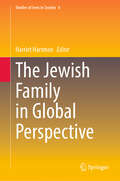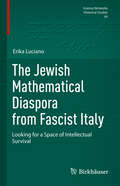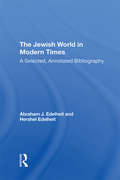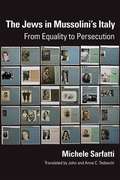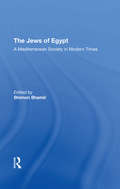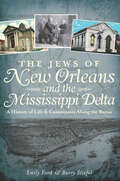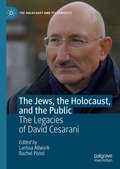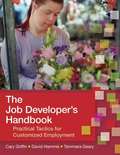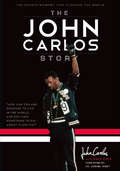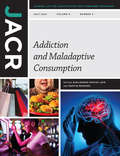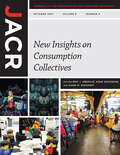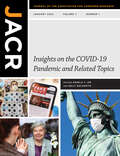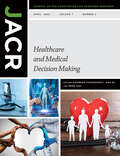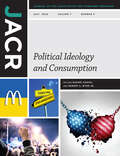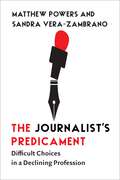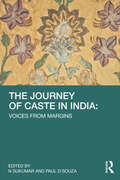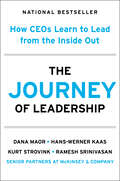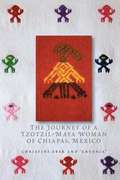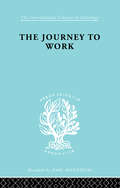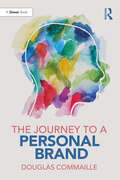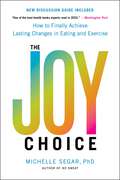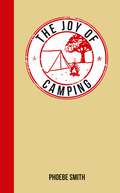- Table View
- List View
The Jewish Family in Global Perspective (Studies of Jews in Society #6)
by Harriet HartmanThis book contains a collection of chapters about the Jewish family across different parts of the world, with contributions representing Africa (Ivory Coast and Ethiopia), Latin America, Australia, Europe (Germany), Russia, Israel, Canada, Indian families in Canada, and a comparative chapter of Ba’a lot Teshuva in the US and Argentina. Where much existing research and literature on the dynamic process of intermarriage and (Jewish) family life has taken primarily a historical approach, here the authors together present a broad, global, comparative approach.The book uses an open systems model to organize comparisons between Jewish families the world over. Each case study focuses on Jewish family life in a particular country or region of the world and, taken together, cover an extensive range of topics – including but not limited to: demographic and socio-economic description of the Jewish families; immigration patterns; family roles; family engagement in Jewish life; marriage formation; interfaith families; same-sex couples/parenting – surveying the extant research and/or reporting on new research about contemporary families, within the historical context. The book therefore presents a novel framework for understanding the variations in Jewish families to highlight what Jewish families the world over have in common (whether within the microsystem of the family or in the family’s relationships with the environment), as well as using the open systems model to explain main types of difference between the various regions.
The Jewish Mathematical Diaspora from Fascist Italy: Looking for a Space of Intellectual Survival (Science Networks. Historical Studies #64)
by Erika LucianoDelving into previously undisclosed archival sources, this monograph offers a meticulously researched portrayal of Italian Jewish mathematicians amidst the turmoil sparked by the 1938 Italian Racial Laws. Forced migration due to fascist anti-Semitism saw the exodus of numerous Jewish intellectuals. Highlighting the experiences of select academic mathematicians such as Guido Fubini, Gino Fano, Beniamino Segre, Alessandro Terracini, and others who fled Italy, this work casts a light on a diaspora that presents unique aspects thanks to pre-existing networks of international scientific solidarity. Despite challenges stemming from language, society, and institutions, their narratives reveal the profound human dimensions of adversity, choice, and camaraderie. Suitable for scholars and students of 20th-century history, as well as a wider audience intrigued by Italy's complex past, these pages offer invaluable insights into a dark chapter of the country's history.
The Jewish World In Modern Times: A Selected, Annotated Bibliography
by Abraham J Edelheit Hershel EdelheitThe momentous events of modern Jewish history have led to a proliferation of books and articles on Jewish life over the last 350 years. Placing modern Jewish history into both universal and local contexts, this selected, annotated bibliography organizes and categorizes the best of this vast array of written material. The authors have included all English-language books of major importance on world Jewry and on individual Jewish communities, plus books most readily available to researchers and readers, and a select number of pamphlets and articles. The resulting bibliography is also a guide to recent Jewish historiography and research methods.
The Jews in Mussolini's Italy: From Equality to Persecution
by Michele SarfattiThis revised and expanded edition uses thorough and careful statistical evidence to document how the Italian social climate changed from relatively just to irredeemably prejudicial. Most forcefully, Sarfatti demonstrates that Rome did not simply follow the lead of Berlin. Rather, Mussolini showed the ability to independently develop a hostile relationship with Italy's Jews, one that eventually led the Italian regime to cooperate in Hitler's Final Solution.
The Jews of Egypt: A Mediterranean Society In Modern Times
by Shimon ShamirThe Jewish community of Egypt in modem times-now practically non-existent-consisted in part of autochthonous Jews who traced their origins to the periods of Maimonides, Philo, and even the prophet Jeremiah, thus making it the oldest community in the Jewish Diaspora. It also contained Jews who were part of the waves of immigration into Egypt that began in the second half of the nineteenth century. Coming mostly from Mediterranean countries, this predominantly Sephardic community maintained a network of commercial, social, and religious ties throughout the entire region, as well as a distinctively Mediterranean culture and life-style. In this volume, international scholars examine the Ottoman background of this community, the political status and participation of the Jews in Egyptian society, their role in economic life, their contributions to Egyptian-Arabic culture, and the images of the community in their own eyes, as well as in the eyes of Egyptians and Palestinian Jews. The book includes an extensive set of appendixes that illustrate the wide range of primary sources used by the contributors.
The Jews of New Orleans and the Mississippi Delta: A History of Life and Community Along the Bayou
by Barry Stiefel Emily FordCelebrate the unique and wonderful melding of Jewish and Bayou cultures. The early days of Louisiana settlement brought with them a clandestine group of Jewish pioneers. Isaac Monsanto and other traders spited the rarely enforced Code Noir banning their occupancy, but it wasn&’t until the Louisiana Purchase that larger numbers colonized the area. Immigrants like the Sartorius brothers and Samuel Zemurray made their way from Central and Eastern Europe to settle the bayou country along the Mississippi. They made their homes in and around New Orleans and the Mississippi River delta, establishing congregations like that of Tememe Derech and B&’Nai Israel, with the mighty river serving as a mode of transportation and communication, connecting the communities on both sides of the riverbank.
The Jews, the Holocaust, and the Public: The Legacies of David Cesarani (The Holocaust and its Contexts)
by Rachel Pistol Larissa AllworkThis book explores the work and legacy of Professor David Cesarani OBE, a leading British scholar and expert on Jewish history who helped to shape Holocaust research, remembrance and education in the UK. It is a unique combination of chapters produced by researchers, curators and commemoration activists who either worked with and/or were taught by the late Cesarani. The chapters in this collection consider the legacies of Cesarani’s contribution to the discipline of history and the practice of public history. The contributors offer reflections on Cesarani’s approach and provide new insights into the study of Anglo-Jewish history, immigrants and minorities and the history and public legacies of the Holocaust.
The Job Developer's Handbook: Practical Tactics for Customized Employment
by Cary Griffin David Hammis Tammara Geary<p>One of the most practical employment books available, this forward-thinking guide walks employment specialists step by step through customized job development for people with disabilities, revealing the best ways to build a satisfying, meaningful job around a person's preferences, skills, and goals. Internationally known for their innovative, proactive job development strategies, the authors motivate readers to expand the way they think about employment opportunities and develop creative solutions. <p>Readers will get fresh, proven tips and ideas for every aspect of job development for youth and adults with significant support needs: <p> <li>discovering who the person is and what he or she really wants <li>ensuring goodness of fit between employer and employee <li>finding—or creating—"hidden jobs" in smaller companies <li>empowering people through resource ownership (investing in resources that employers need) <li>skillfully negotiating job duties while managing conflicts that might arise <li>creatively maximizing benefits using social security work incentives <li>encouraging family support while respecting the individual as an adult</li> <p> <p>To make each part of job development easier, the book arms readers with practical content they can really use: easy-to-follow, step-by-step guidelines; checklists of critical questions to answer; success stories in both urban and rural settings; and sample scenarios, dialogues, and interview questions. <p>Equally useful to veteran professionals and those just starting out, this compelling guidebook breathes new life into the job development process and helps readers imagine a wider world of employment opportunities for people with disabilities.</p>
The John Carlos Story: The Sports Moment That Changed the World
by Dave Zirin John Carlos&“A powerful and poignant memoir&” of an African American athlete who defied the establishment—decades before Colin Kaepernick (Cornel West, New York Times–bestselling author of Race Matters).An NAACP Image Award Nominee for Outstanding Literary Work—Biography/Autobiography John Carlos was a bronze medalist in the two hundred-meter race at the 1968 Olympics, but he is remembered for more than his athletic accomplishments. His and his fellow medalist&’s Tommie Smith&’s Black Power salutes on the podium sparked controversy and career fallout—yet their show of defiance, seen around the world, remains one of the most iconic images of both Olympic history and African American history. This is the remarkable story of John Carlos&’s experience as a young man in Harlem, a track and field athlete, and lifelong activist. &“This book is fascinating for more than just the sports history, as the text talks about Carlos&’ connection to Dr. King, basketball player Kareem Abdul Jabbar, Olympic runner Ralph Boston, baseball legend Jackie Robinson and boxer George Foreman. Carlos even comments on topics in today&’s news including First Lady Michelle Obama, the value of Twitter, the antics of athletes like Chad Ochocinco and Terrell Owens, and his views on an award he received at ESPN&’s 2008 ESPYs.&” —Chicago Tribune &“John Carlos is an American hero . . . I couldn&’t put this book down.&” —Michael Moore, filmmaker and New York Times–bestselling author of Here Comes Trouble
The Journal of a Country Parish
by Robin PageFrom his home on a small farm in Cambridgeshire, Robin Page describes the realities of pastoral life in his village and the surrounding fields, month by month, through one year. There are visits from the vet, difficult calvings, conversations with gypsies, country cricket and soccer matches, and a host of other activities, all closely observed with the insight of someone actively involved in the village routine. This refreshingly intimate picture of the pleasure and anxieties of rural life will be greatly valued by all those interested in the English countryside and country living.
The Journal of the Association for Consumer Research, volume 6 number 3 (July 2021)
by The Journal of the Association for Consumer ResearchThis is volume 6 issue 3 of The Journal of the Association for Consumer Research. The Journal of the Association for Consumer Research (JACR) publishes quarterly thematic issues exploring unique topics in consumer behavior. The mission of JACR is to broaden the intellectual scope and interdisciplinary influence of the Association for Consumer Research. Each issue of JACR has a well-defined theme, chosen from the broad substantive, managerial, and methodological topics relevant to understanding consumer behavior; and each issue is directed by a different team of editors who, with their relevant experience and expertise, are best poised to assemble outstanding articles around that theme.
The Journal of the Association for Consumer Research, volume 6 number 4 (October 2021)
by The Journal of the Association for Consumer ResearchThis is volume 6 issue 4 of The Journal of the Association for Consumer Research. The Journal of the Association for Consumer Research (JACR) publishes quarterly thematic issues exploring unique topics in consumer behavior. The mission of JACR is to broaden the intellectual scope and interdisciplinary influence of the Association for Consumer Research. Each issue of JACR has a well-defined theme, chosen from the broad substantive, managerial, and methodological topics relevant to understanding consumer behavior; and each issue is directed by a different team of editors who, with their relevant experience and expertise, are best poised to assemble outstanding articles around that theme.
The Journal of the Association for Consumer Research, volume 7 number 1 (January 2022)
by The Journal of the Association for Consumer ResearchThis is volume 7 issue 1 of The Journal of the Association for Consumer Research. The Journal of the Association for Consumer Research (JACR) publishes quarterly thematic issues exploring unique topics in consumer behavior. The mission of JACR is to broaden the intellectual scope and interdisciplinary influence of the Association for Consumer Research. Each issue of JACR has a well-defined theme, chosen from the broad substantive, managerial, and methodological topics relevant to understanding consumer behavior; and each issue is directed by a different team of editors who, with their relevant experience and expertise, are best poised to assemble outstanding articles around that theme.
The Journal of the Association for Consumer Research, volume 7 number 2 (April 2022)
by The Journal of the Association for Consumer ResearchThis is volume 7 issue 2 of The Journal of the Association for Consumer Research. The Journal of the Association for Consumer Research (JACR) publishes quarterly thematic issues exploring unique topics in consumer behavior. The mission of JACR is to broaden the intellectual scope and interdisciplinary influence of the Association for Consumer Research. Each issue of JACR has a well-defined theme, chosen from the broad substantive, managerial, and methodological topics relevant to understanding consumer behavior; and each issue is directed by a different team of editors who, with their relevant experience and expertise, are best poised to assemble outstanding articles around that theme.
The Journal of the Association for Consumer Research, volume 7 number 3 (July 2022)
by The Journal of the Association for Consumer ResearchThis is volume 7 issue 3 of The Journal of the Association for Consumer Research. The Journal of the Association for Consumer Research (JACR) publishes quarterly thematic issues exploring unique topics in consumer behavior. The mission of JACR is to broaden the intellectual scope and interdisciplinary influence of the Association for Consumer Research. Each issue of JACR has a well-defined theme, chosen from the broad substantive, managerial, and methodological topics relevant to understanding consumer behavior; and each issue is directed by a different team of editors who, with their relevant experience and expertise, are best poised to assemble outstanding articles around that theme.
The Journalist's Predicament: Difficult Choices in a Declining Profession
by Matthew Powers Sandra Vera-ZambranoLow pay. Uncertain work prospects. Diminished prestige. Why would anyone still want be a journalist? Drawing on in-depth interviews in France and the United States, Matthew Powers and Sandra Vera-Zambrano explore the ways individuals come to believe that journalism is a worthy pursuit—and how that conviction is managed and sometimes dissolves amid the profession’s ongoing upheavals.For many people, journalism represents a job that is interesting and substantial, with opportunities for expression, a sense of self-fulfillment, and a connection to broader social values. By distilling complex ideas, holding the powerful to account, and revealing hidden realities, journalists play a crucial role in helping audiences make sense of the world. Experiences in the profession, though, are often far more disappointing. Many find themselves doing tasks that bear little relation to what attracted them initially or are frustrated by institutions privileging what sells over what informs. The imbalance between the profession’s economic woes and its social importance threatens to erode individuals’ beliefs that journalism remains a worthwhile pursuit. Powers and Vera-Zambrano emphasize that, as with many seemingly individual choices, social factors—class, gender, education, and race—shape how journalists make sense of their profession and whether or not they remain in it.An in-depth story of one profession under pressure, The Journalist’s Predicament uncovers tensions that also confront other socially important jobs like teaching, nursing, and caretaking.
The Journey of Caste in India: Voices from Margins
by N. Sukumar and Paul D’SouzaThis book provides a comprehensive overview of caste in contemporary India. With contributions from scholars like Valerian Rodrigues, B. B. Mohanty, Surinder Jodhka, Anand Teltumbde, etc. It discusses wide-ranging themes like the trajectory of caste in post-independence India; Dalits and cultural identity; the paradox of being a Dalit woman; caste violence and social mobility; Ambedkar’s quest for the right of social equality; social security for inclusive development of Dalits; discrimination and exclusion of Dalits in education; and Dalit merit and institutional injustice, and presents an overview of the struggles for distributive justice in India. This volume will be of importance to scholars and researchers of Dalit studies, social justice, exclusion studies, caste studies, affirmative action, political studies, sociology, social anthropology, and South Asian politics.
The Journey of Caste in India: Voices from Margins
by N. Sukumar and Paul D’SouzaThis book provides a comprehensive overview of caste in contemporary India. With contributions from scholars like Valerian Rodrigues, B.B. Mohanty, Surinder Jodhka, and Anand Teltumbde, it discusses wide-ranging themes like the trajectory of caste in post-independence India; Dalits and cultural identity; the paradox of being a Dalit woman; caste violence and social mobility; Ambedkar’s quest for the right of social equality; social security for the inclusive development of Dalits; discrimination and exclusion of Dalits in education; and Dalit merit and institutional injustice, and presents an overview of the struggles for distributive justice in India.This volume will be of importance to scholars and researchers of Dalit studies, social justice, exclusion studies, caste studies, affirmative action, political studies, sociology, social anthropology, and South Asian politics.
The Journey of Leadership: How CEOs Learn to Lead from the Inside Out
by Ramesh Srinivasan Dana Maor Hans-Werner Kaas Kurt StrovinkA NATIONAL BESTSELLER!When the pressure is on, many of the world&’s top CEOs turn to McKinsey & Company to reinvent themselves and their organizations. The Journey of Leadership brings the experience of one of the world&’s most influential consulting firms right to your fingertips.This book is the first-ever explanation of McKinsey&’s step-by-step approach to transforming leaders both professionally and personally, including revealing lessons from its legendary CEO leadership program, The Bower Forum, which has counseled more than five hundred global CEOs over the past decade. It is a journey that helps leaders hone the psychological, emotional, and, ultimately, human attributes that result in success in today&’s most demanding top job. Packed with insightful and never-before-heard reflections from leaders, including Ed Bastian (CEO of Delta Air Lines), Makoto Uchida (CEO of Nissan Motor Corporation), Mark Fields (former CEO of Ford Motor Company), Reeta Roy (CEO of Mastercard Foundation), and Stéphane Bancel (CEO of Moderna), you will learn how to: Assess your personal leadership approach and style objectively. Discover your true mandate as a leader.Develop creative, actionable ways to reinvigorate both yourself and your organization.Create a personal commitment plan to inspire your team and cement your legacy.The Journey of Leadership is an invaluable resource for anyone running or hoping to run an organization in today&’s ever-more-complex world.
The Journey of a Tzotzil-Maya Woman of Chiapas, Mexico
by Christine Eber AntoniaMost recent books about Chiapas, Mexico, focus on political conflicts and the indigenous movement for human rights at the macro level. None has explored those conflicts and struggles in-depth through an individual woman's life story. The Journey of a Tzotzil-Maya Woman of Chiapas, Mexico now offers that perspective in one woman's own words. Anthropologist Christine Eber met "Antonia" in 1986 and has followed her life's journey ever since. In this book, they recount Antonia's life story and also reflect on challenges and rewards they have experienced in working together, offering insight into the role of friendship in anthropological research, as well as into the transnational movement of solidarity with the indigenous people of Chiapas that began with the Zapatista uprising. Antonia was born in 1962 in San Pedro Chenalhó, a Tzotzil-Maya township in highland Chiapas. Her story begins with memories of childhood and progresses to young adulthood, when Antonia began working with women in her community to form weaving cooperatives while also becoming involved in the Word of God, the progressive Catholic movement known elsewhere as Liberation Theology. In 1994, as a wife and mother of six children, she joined a support base for the Zapatista Army of National Liberation. Recounting her experiences in these three interwoven movements, Antonia offers a vivid and nuanced picture of working for social justice while trying to remain true to her people's traditions.
The Journey to Work: Its Significance for Industrial and Community Life (International Library of Sociology)
by Kate LiepmannOriginally published in 1944. This title available in eBook format. Click here for more information.Visit our eBookstore at: www.ebookstore.tandf.co.uk.
The Journey to a Personal Brand
by Douglas CommailleTransitions in life are now a reality for everyone. This book takes you through the journey to create your own Personal Brand and take ownership of and address these transitions based on your values, career, skills, knowledge and aims. A Personal Brand is a positive in the reader’s life – professionally, personally and psychologically. It builds people’s confidence and is founded on who they are, their achievements and successes, as well as their technical and person-to-person skills. Drawing upon well-known Personal Brands, including Walt Disney, Nelson Mandela and Steve Jobs, The Journey to a Personal Brand forces readers to reevaluate themselves critically and honestly. Readers are guided through creating a distinctive brand from scratch through to launching it on digital media. This intensely practical guide is essential reading for the professional, the return-to-worker, the student and early retiree alike or those wishing to improve their life and bring added value to their careers, personal profile or reputation.
The Joy Choice: How to Finally Achieve Lasting Changes in Eating and Exercise
by Michelle SegarLearn to live a happier and healthier life with the help of this book—start changing behaviors and create new habits using fun and easy science-based solutions. What if you could easily and joyfully resolve the in-the-moment conflicts that often derail your eating and exercise goals? Much of what we&’ve been taught about creating change in eating and exercise is simplistic, outdated, and for many, misguided. Sustainable-behavior-change researcher and lifestyle coach Michelle Segar has devoted decades to the study of how to achieve lasting changes in eating and exercise and other self-care behaviors. Segar explains the surprising reasons why our eating and exercise plans so often crash when they come up against real life. She calls these conflicts &“choice points,&” and shows that they are the real place of power for achieving lasting changes in eating and exercise.The Joy Choice offers a fresh, brain-based solution that turns the old behavior-change paradigm on its head. This groundbreaking book liberates you from the self-defeating obligations and rigid requirements of past diet and workout regimens and reveals what emerging research suggests really drives the consistent choices that power sustainable change. Designed from cutting-edge decision science and real-world experience coaching clients, you&’ll discover the easy, flexible, and three-step joy-infused decision tool that works with the chaos of daily life, guiding you to finally achieve and maintain your eating and exercise goals once and for all—and enjoy doing it! "One of the best health books of 2022&”—Washington Post &“If you want a smart, science-based, and joyful approach to sustainable behavior change, start here." ―Tom Rath, NYT bestselling author of Eat Move Sleep and StrengthsFinder 2.0 "The Joy Choice...reveals easy and fun ways to stay consistent with our health goals, while still tending to the meaningful people and demands in our lives."―Tina Payne Bryson, Ph.D., NYT bestselling co-author of The Whole-Brain Child and author of The Bottom Line for Baby "If you&’re frustrated with your progress in exercising and eating right, this book is for you. Michelle Segar shifts the focus...toward a new approach to our choices that is full of humanity, imperfection, and, yes, joy.&” ―Daniel H. Pink, NYT bestselling author of The Power of Regret and Drive
The Joy of Camping: For Those Who Love the Great Outdoors (The\joy Of Ser.)
by Phoebe SmithThis pocket-sized miscellany, packed with tips on equipment, food, surviving bad weather and finding the right campsite, and with facts and stories from the world of camping, is perfect for anyone who knows the incomparable joy and adventure of pitching their tent under an open sky.
The Joy of Camping: For Those Who Love the Great Outdoors (The\joy Of Ser.)
by Phoebe SmithThis pocket-sized miscellany, packed with tips on equipment, food, surviving bad weather and finding the right campsite, and with facts and stories from the world of camping, is perfect for anyone who knows the incomparable joy and adventure of pitching their tent under an open sky.
